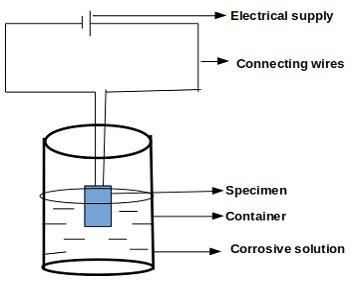Corrosion Testing MCQs
Welcome to our comprehensive collection of Multiple Choice Questions (MCQs) on Corrosion Testing, a fundamental topic in the field of Corrosion Engineering. Whether you're preparing for competitive exams, honing your problem-solving skills, or simply looking to enhance your abilities in this field, our Corrosion Testing MCQs are designed to help you grasp the core concepts and excel in solving problems.
In this section, you'll find a wide range of Corrosion Testing mcq questions that explore various aspects of Corrosion Testing problems. Each MCQ is crafted to challenge your understanding of Corrosion Testing principles, enabling you to refine your problem-solving techniques. Whether you're a student aiming to ace Corrosion Engineering tests, a job seeker preparing for interviews, or someone simply interested in sharpening their skills, our Corrosion Testing MCQs are your pathway to success in mastering this essential Corrosion Engineering topic.
Note: Each of the following question comes with multiple answer choices. Select the most appropriate option and test your understanding of Corrosion Testing. You can click on an option to test your knowledge before viewing the solution for a MCQ. Happy learning!
So, are you ready to put your Corrosion Testing knowledge to the test? Let's get started with our carefully curated MCQs!
Corrosion Testing MCQs | Page 4 of 4
Discover more Topics under Corrosion Engineering

